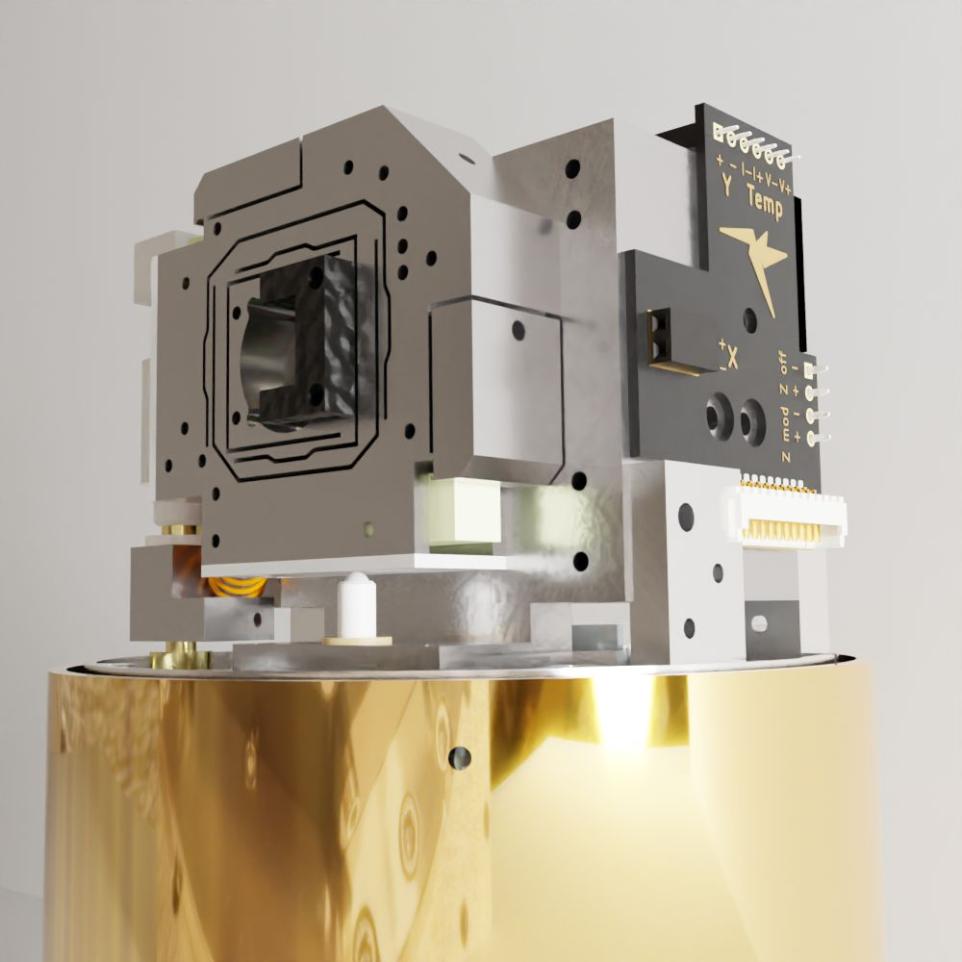
Cavity quantum optics platform
Our platform is a highly stable scanning micro-cavity system that can be operated in a closed-cycle cryostat to strongly couple solid state quantum systems to light. The highly stable but flexible open-cavity scanning approach makes it possible to quickly sample thousands of quantum systems with ease. This enables fast and efficient research and development of novel quantum technologies and quantum systems.
Key numbers
No trade-off between high performance and flexibility
Ultra-Stable
Thoroughly optimized for sub-picometer optical stability even in shaking closed-cycle cryostats.
Ultra-high Finesse & Small mode volume
Our micro-cavity system features an ultra-high Finesse of up F>10⁵ and at the same time mode volumes as low as V<2λ³. Quality factors can exceed Q>10⁶.
Cold & Magnetic
Work at 4 Kelvin and below in your closed-cycle cryostat and apply magnetic fields.
Flexible
Move to any point on a sample with many millimeters movement range and get resonant with any quantum system by tuning the cavity lengths between 1-1000 µm.
Features
Get started immediately, get results faster
Quick start
Start in days instead of years into cavity-quantum optics with hardware, software, documentation and support.
Everything under control
Use our hardware and software to image your samples, position on individual quantum systems, measure cavity performance and -length and stabilize the cavity.
Complete
Get a complete system with cavity mirrors, precise positioning, low noise electronics, software and stabilization.
Versatile & simple sample preparation
Samples just need to be placed on the fused silica mirrors by stamping, spin-coating, drop casting or exfoliation.
Materials
Due to the open-access to the resonator mode and because a sample has to simply be brought onto the planar mirror, a wide variety of materials can be coupled to our cavity system.
Nanoparticles, membranes, bulk material, and layers can be prepared using spin-coating, drop casting, stamping, ....
Example materials include:
- Self-assembled quantum dots
- 2D materials
- NV centers and other defects in diamond (SiV, SnV)
- Rare-earth ion-doped crystals
- Organic molecules
Applications
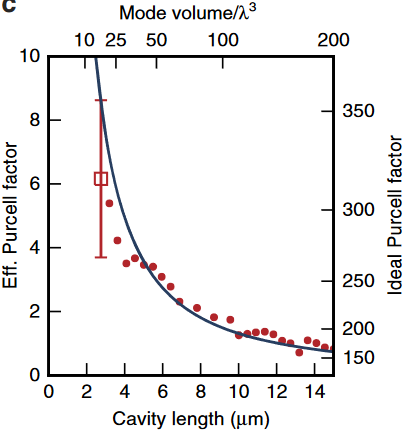
Purcell-enhanced single-photon emission
The small mode volume and high Q factors achievable with our Cryogenic Open cavity system are ideall to enhance emission from quantum emitters via the Purcell effect. The fully free length tunability of our system enables to be perfectly in resonance with the emitter, adapt the Q and mode volume to get the strongest emission. Purcell effects of almost 1000 are possible. Changing the mode volume via long cavity length changes can even make the scaling of the Purcell facgtor visible as in this publiction.
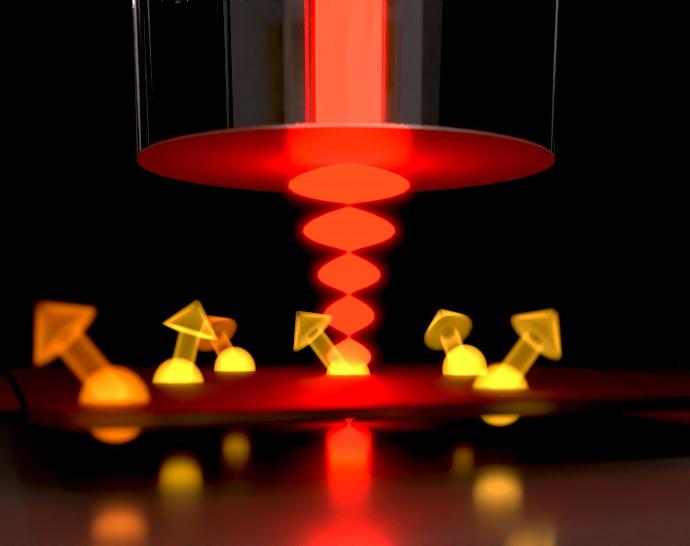
Quantum Repeaters & Networks

Quantum computation
Quantum computation using single photon sources or rare-earth ions has been proposed using our micro-cavities.
Publications
Some papers where our system or predecessors were used.
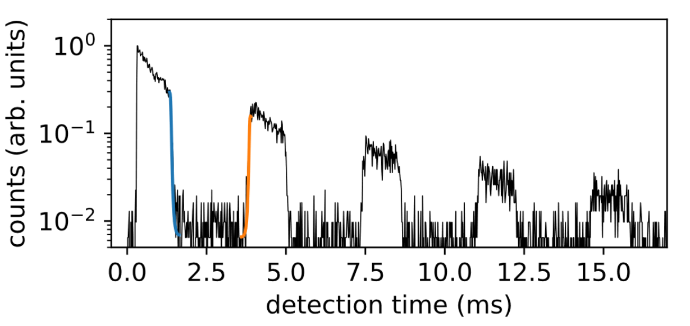
Dynamic control of Purcell-enhanced emission of erbium ions in nanoparticles
"Here we demonstrate the dynamical control of the Purcell-enhanced emission of a small ensemble of erbium ions doped into a nanoparticle. By embedding the nanoparticles into a fully tunable high finesse fiber based optical microcavity, we demonstrate a median Purcell factor of 15 for the ensemble of ions. We also show that we can dynamically control the Purcell enhanced emission by tuning the cavity on and out of resonance, by controlling its length with sub-nanometer precision on a time scale more than two orders of magnitude faster than the natural lifetime of the erbium ions. "
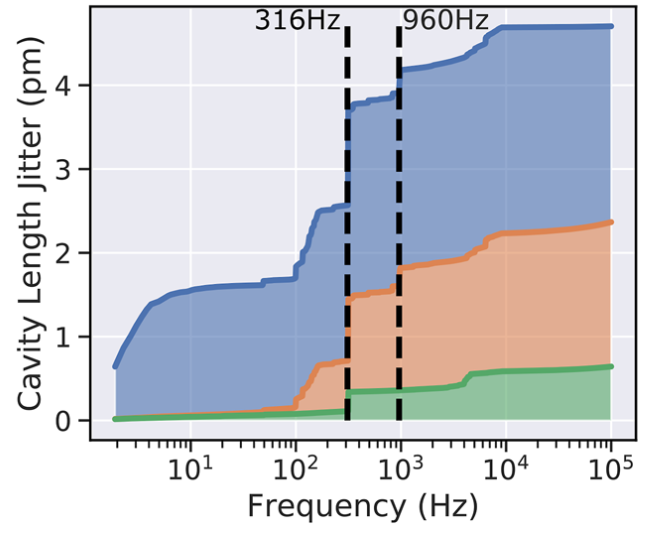
A highly stable and fully tunable open microcavity platform at cryogenic temperatures
"Even higher stability is obtained under direct mechanical contact between the cavity mirrors, yielding 0.8 pm rms during the quiet phase of the closed-cycle cryocooler. The platform provides the operation of cryogenic cavities with high finesse and small mode volume for strong enhancement of light–matter interactions, opening up novel possibilities for experiments with a great variety of quantum and nanomaterials"
Cryostat compatibility & extras
The cavity system can be operated out of the box at room temperature and can be mounted in cryostats in mere minutes. It is tested, specified and outfitted for the high perfomance and quick use inside Attocube Attodry 800 and the Qinu Siunludi millikelvin cryostats which both offer low vibrations and free-space optical access. Contact us for operation in othe cryostats.
We are happy to discuss additional options like
- RF-fields
- Microwave fields
- Magnetic fields